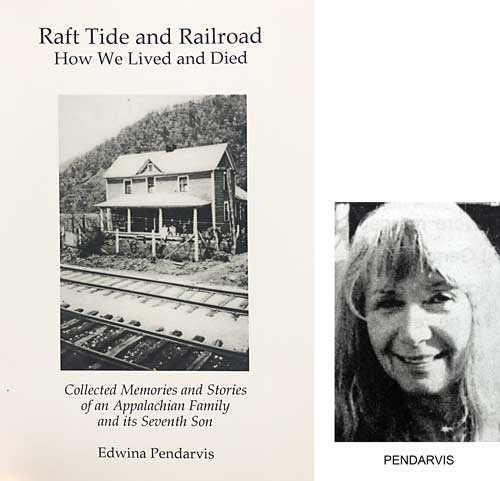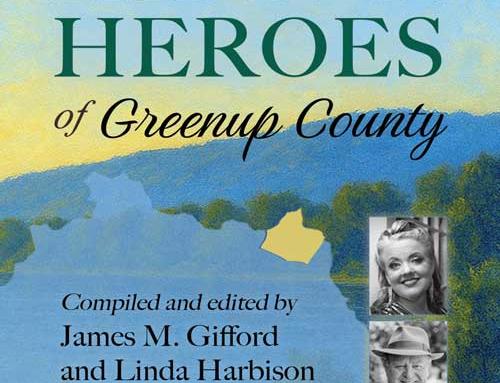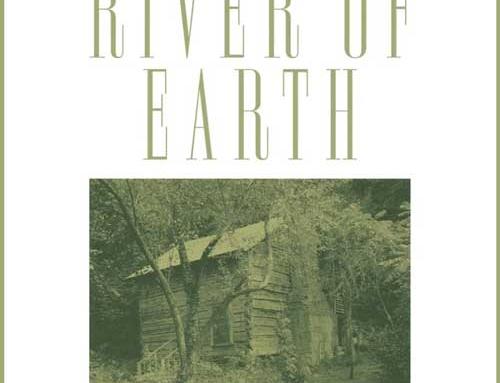In this family history, “Raft Tide and Railroad: How We Lived and Died — Collected Memories and Stories of an Appalachian Family and Its Seventh Son,” Appalachian author, poet, and editor Dr. Edwina Pendarvis, was guided by sage advice from a grandmother, Jet Johnson, known only to her through family stories and photographs. Not long before Johnson was murdered, she asked one of her sons to note the strength of a bundle of twigs – as opposed to an individual twig – and see it as a metaphor for family strength – a metaphor originated by an earlier Appalachian – the warrior Tecumseh. In “Raft Tide and Railroad,” the author has preserved her family’s history and recognized its strength through accounts that span seven generations of experiences in Virginia, Kentucky, and West Virginia from the early 1800s to the present.
 Pendarvis, a key member of the Jesse Stuart Foundation editorial team, also tells a larger, communal story of those who settled the Appalachian region. It is one of homesteading an untamed wilderness, timbering the virgin forests, and moving the logs downstream on swollen rivers. She recounts life on the farms, in the small towns created by the coming of the railroads, and in the coal camps. As the title promises, the memoir focuses on the life of one “special” uncle, the seventh son of a seventh son and youngest child of Jet Johnson. His story is a rags-to-riches account of a self-proclaimed “hillbilly” who built a horse-breeding empire after selling a successful mining company. Sports Illustrated said of Donald Johnson: “Far from being a member of the horsey Lexington aristocracy, he’d made his fortune as a coal operator in the mountains of eastern Kentucky, deep in the heart of Appalachia.”
Pendarvis, a key member of the Jesse Stuart Foundation editorial team, also tells a larger, communal story of those who settled the Appalachian region. It is one of homesteading an untamed wilderness, timbering the virgin forests, and moving the logs downstream on swollen rivers. She recounts life on the farms, in the small towns created by the coming of the railroads, and in the coal camps. As the title promises, the memoir focuses on the life of one “special” uncle, the seventh son of a seventh son and youngest child of Jet Johnson. His story is a rags-to-riches account of a self-proclaimed “hillbilly” who built a horse-breeding empire after selling a successful mining company. Sports Illustrated said of Donald Johnson: “Far from being a member of the horsey Lexington aristocracy, he’d made his fortune as a coal operator in the mountains of eastern Kentucky, deep in the heart of Appalachia.”
Pendarvis opens up the lives of forebears through the stories she has mined from genealogy research, family stories and lore, letters, and newspaper articles. She sometimes shifts perspectives from first-person to third, sometimes adding comment but often merely reminding the reader of her role as family member. One example can be seen in the episode preceding the assassination-style murder of her grandmother. Pendarvis begins: “Though I was there the day Jet was killed, I was a baby, too young to understand what was happening.”
Although the family history narrative introduces seven generations of Johnsons, mother and son, Jet and Donald Johnson, dominate the story. More than two-thirds of Dr. Pendarvis’ book is dedicated to the memories and exploits of her uncle Donald, who once sold a thoroughbred colt for $10.2 million. The colt was the son of Kentucky Derby winner Northern Dancer.
Pendarvis has added an extensive bibliography, genealogical information, and a gallery of photographs. Her multi-genre approach to this storytelling can serve as a template for others who want to preserve their family’s history. The blending of recollections, published information, and creative fiction has enabled Pendarvis to recreate a work of “people, places, and things in eastern Kentucky [and West Virginia] that are mostly gone now, but continue to affect what’s still there.”
Tragic, funny, and thoughtful, “Raft Tide and Railroad” will be discussed at the May 31 meeting of the Regional Readers book discussion group. Edwina Pendarvis will present an Author Talk at 1 p.m.; a social hour will follow at 2 p.m. The event is free and open to the public. For more information, contact the Jesse Stuart Foundation at 606-326-1667 or e-mail jsf@jsfbooks.com.
By James M. Gifford
JSF CEO & Senior Editor
In this family history, “Raft Tide and Railroad: How We Lived and Died — Collected Memories and Stories of an Appalachian Family and Its Seventh Son,” Appalachian author, poet, and editor Dr. Edwina Pendarvis, was guided by sage advice from a grandmother, Jet Johnson, known only to her through family stories and photographs. Not long before Johnson was murdered, she asked one of her sons to note the strength of a bundle of twigs – as opposed to an individual twig – and see it as a metaphor for family strength – a metaphor originated by an earlier Appalachian – the warrior Tecumseh. In “Raft Tide and Railroad,” the author has preserved her family’s history and recognized its strength through accounts that span seven generations of experiences in Virginia, Kentucky, and West Virginia from the early 1800s to the present.

Pendarvis, a key member of the Jesse Stuart Foundation editorial team, also tells a larger, communal story of those who settled the Appalachian region. It is one of homesteading an untamed wilderness, timbering the virgin forests, and moving the logs downstream on swollen rivers. She recounts life on the farms, in the small towns created by the coming of the railroads, and in the coal camps. As the title promises, the memoir focuses on the life of one “special” uncle, the seventh son of a seventh son and youngest child of Jet Johnson. His story is a rags-to-riches account of a self-proclaimed “hillbilly” who built a horse-breeding empire after selling a successful mining company. Sports Illustrated said of Donald Johnson: “Far from being a member of the horsey Lexington aristocracy, he’d made his fortune as a coal operator in the mountains of eastern Kentucky, deep in the heart of Appalachia.”
Pendarvis opens up the lives of forebears through the stories she has mined from genealogy research, family stories and lore, letters, and newspaper articles. She sometimes shifts perspectives from first-person to third, sometimes adding comment but often merely reminding the reader of her role as family member. One example can be seen in the episode preceding the assassination-style murder of her grandmother. Pendarvis begins: “Though I was there the day Jet was killed, I was a baby, too young to understand what was happening.”
Although the family history narrative introduces seven generations of Johnsons, mother and son, Jet and Donald Johnson, dominate the story. More than two-thirds of Dr. Pendarvis’ book is dedicated to the memories and exploits of her uncle Donald, who once sold a thoroughbred colt for $10.2 million. The colt was the son of Kentucky Derby winner Northern Dancer.
Pendarvis has added an extensive bibliography, genealogical information, and a gallery of photographs. Her multi-genre approach to this storytelling can serve as a template for others who want to preserve their family’s history. The blending of recollections, published information, and creative fiction has enabled Pendarvis to recreate a work of “people, places, and things in eastern Kentucky [and West Virginia] that are mostly gone now, but continue to affect what’s still there.”
Tragic, funny, and thoughtful, “Raft Tide and Railroad” will be discussed at the May 31 meeting of the Regional Readers book discussion group. Edwina Pendarvis will present an Author Talk at 1 p.m.; a social hour will follow at 2 p.m. The event is free and open to the public. For more information, contact the Jesse Stuart Foundation at 606-326-1667 or e-mail jsf@jsfbooks.com.
By James M. Gifford
JSF CEO & Senior Editor




